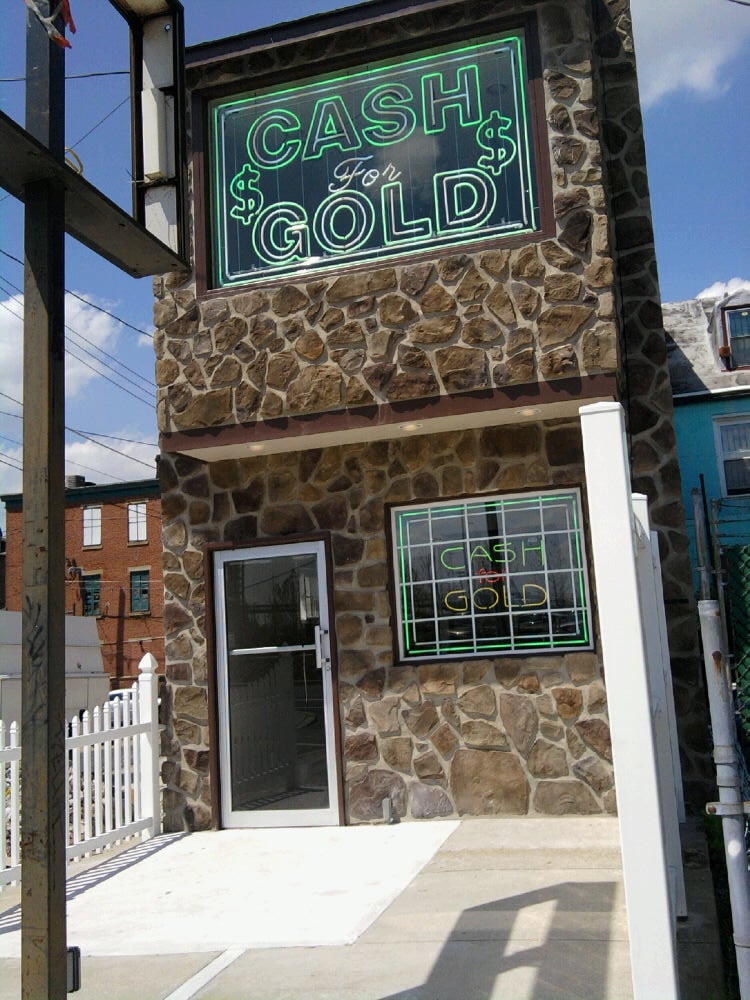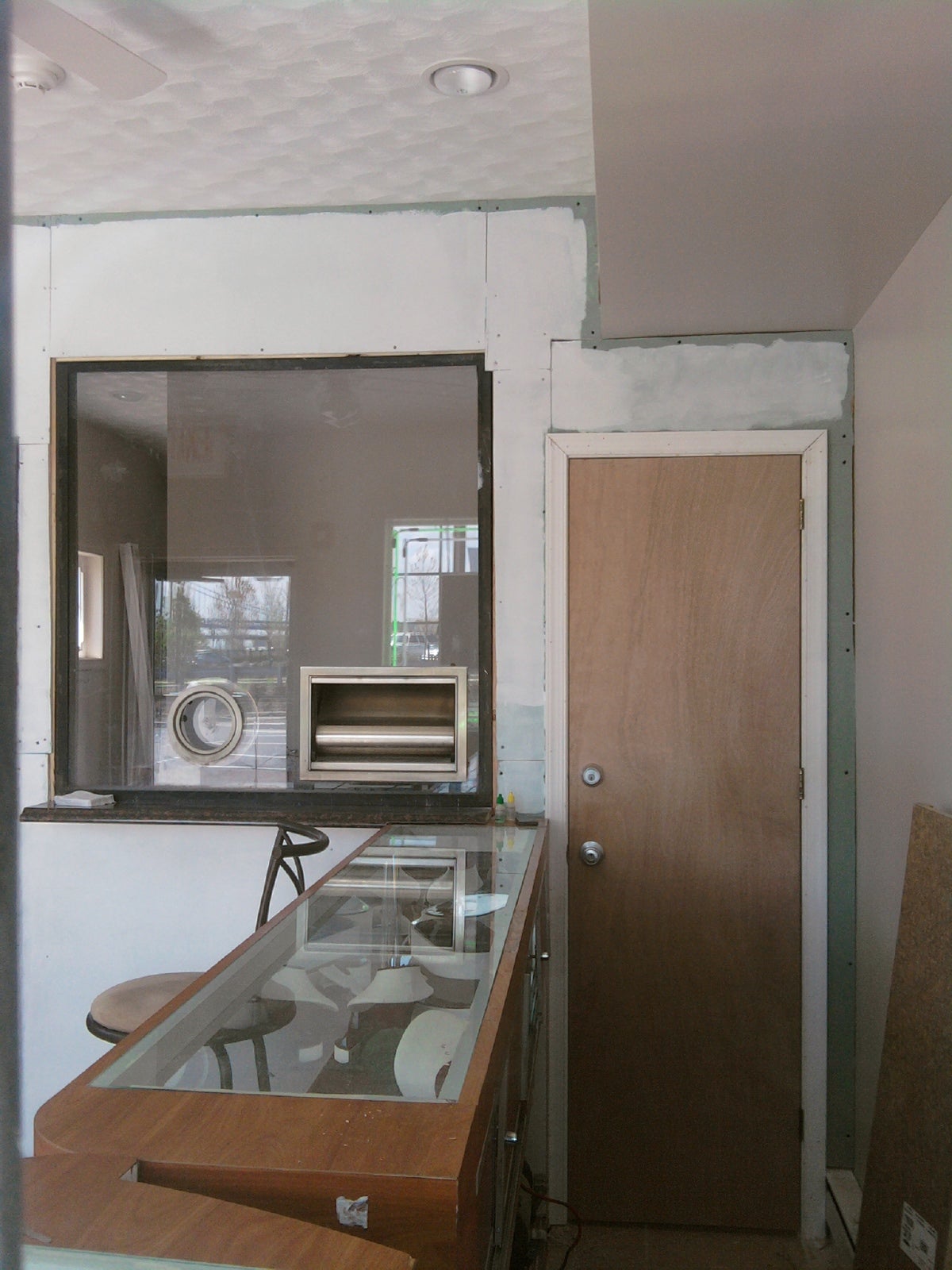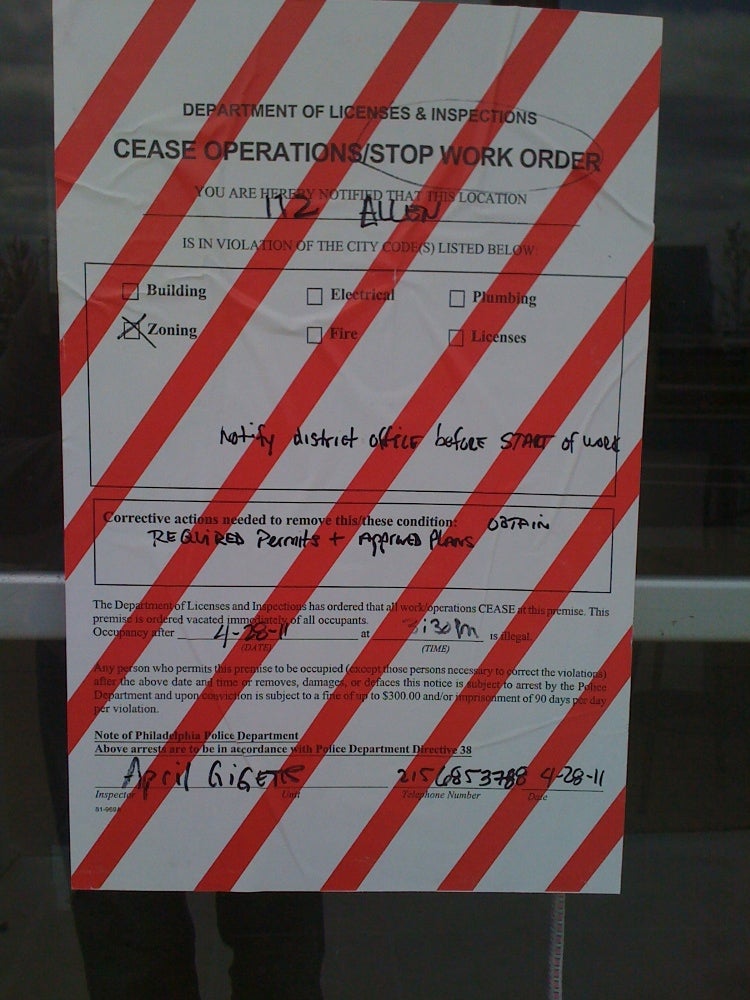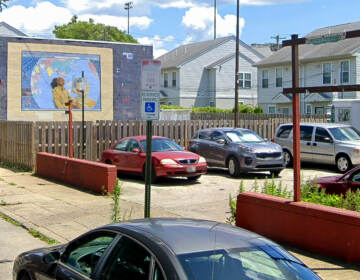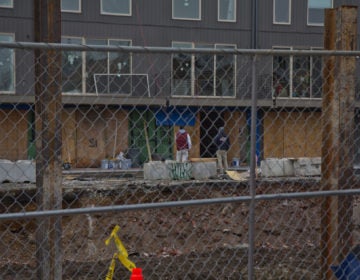Amended version of bill aimed at curbing cash-for-gold stores gets planning commission approval
The Philadelphia City Planning Commission Tuesday gave its approval to a legislative effort to restrict cash-for-gold establishments in the same part of the zoning code that regulates pawn shops.
Fifth District Councilman Darrell Clarke introduced the legislation earlier this month, in response to a business that has not yet opened across Delaware Avenue from SugarHouse Casino. The row-house sized structure was permitted as a jewelry store with a precious metal dealer license. But the green neon signs that went up on the windows read “Cash for Gold.” To neighbors – and Clarke – cash-for-gold stores are a type of pawn shop, and pawn shops are prohibited in the area. But the pawn shop definition in the code had no specific reference to cash-for-gold businesses.
“Obviously, we are concerned,” said Commission Chairman and Deputy Mayor for Planning and Economic Development Alan Greenberger. “It appears to be a total end run around the law.”
Should the bill pass council, it will not apply to the store across from SugarHouse, which still faces other licensing and zoning hurdles before it can open.
But development division planner Paula Brumbelow told the commission that the legislation is not about a single site. It would apply city wide, and cash-for-gold type businesses have been popping up in other locations across the city, too, and so action was needed.
Commissioners’ approval was contingent on city council amending the bill, stating that any new business that needs a license to buy and sell precious metals would need approval from the zoning board of adjustment in addition to the precious metal dealer permit they must already get from L&I.
The amendment was drafted specifically so that jewelry stores that do not require a precious metals license would not be affected by the legislation, which was a concern of L&I, said planner Brumbelow. See the original version here and planning’s proposed amendment here.
“So if I want to open a high end jewelry store on Jewelers Row, and I need a precious metal license, would I be classified as a pawn shop?” asked Commissioner Brian Abernathy, who is chief of staff in the managing director’s office.
“You’d be under the need of having to get a regulated use permit,” Brumbelow said. “You wouldn’t need the (pawn shop) sign.”
“So I wouldn’t need the degrading sign, but I would still be a regulated use,” Abernathy said. “I feel like we are trying to kill a fly with a shotgun,” he said.
Should the legislation pass, it would not apply to jewelers already in existence, Brumbelow said. She and Greenberger told the commission that more tinkering needed to be done with the wording.
In the new zoning code, planners are looking at how to “evolve” the language, Greenberger said. The new proposed zoning code addresses the issue as well, he said.
This is one of these things where the language of how you say this is extremely important,” he said.
“Staff will be working throughout summer on a more comprehensive solution in order to address this difficult definition and the type of businesses that are popping up throughout the city that are a concern to the neighborhoods,” Brumbelow told commissioners.
Greenberger gave some history and a progress report on the row-house sized establishment across from SugarHouse that inspired Clarke’s legislation.
The ZBA gave the owner a variance in 2009, allowing for residences above, and C-1 commercial retail – such as a small, corner store – on the ground floor. It contained a proviso that when the owner knew what specific retail use the space would hold, a use permit request would be filed, Greenberger said.
One was filed in 2010 for a jewelry store – a use consistent with what the ZBA allowed, he said. So L&I granted a permit for a jewelry store with a precious metals license, which allows up to 25 percent of the square footage to be taken up by the precious metals part of the business. The permit said it did not apply to signs.
But then the neon cash-for-gold signs went up. While the permit address is 112 E. Allen Street, the building fronts on Delaware Avenue. “It is across the street from the casino,” Greenberger said. “You can draw your own conclusions.”
L&I gave the business a cease owner for the signs, which came down. Also, “the store still needs a certificate of occupancy to do what it says it is doing,” Greenberger said. “In fairness, we have to allow the owner, who said he was going to open a jewelry store, to open a jewelry store,” he said. But the city will be watching to make sure that’s what it is.
“I think the feeling is this thing better be a jewelry store, or it’s probably going to get the same cease work order, from L&I,” Greenberger said.
After the meeting, Planning Commission Executive Director Gary Jastrzab said the commission needed to bring a recommendation forward now in case council votes on the proposed legislation before breaking for the summer. “This is not just a Philadelphia problem,” Jastrzab said. “It’s a problem cities across the country with casinos are experiencing.”
Reach the reporter at kgates@planphilly.com
WHYY is your source for fact-based, in-depth journalism and information. As a nonprofit organization, we rely on financial support from readers like you. Please give today.



